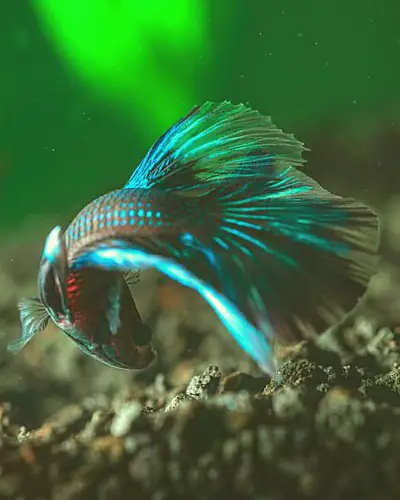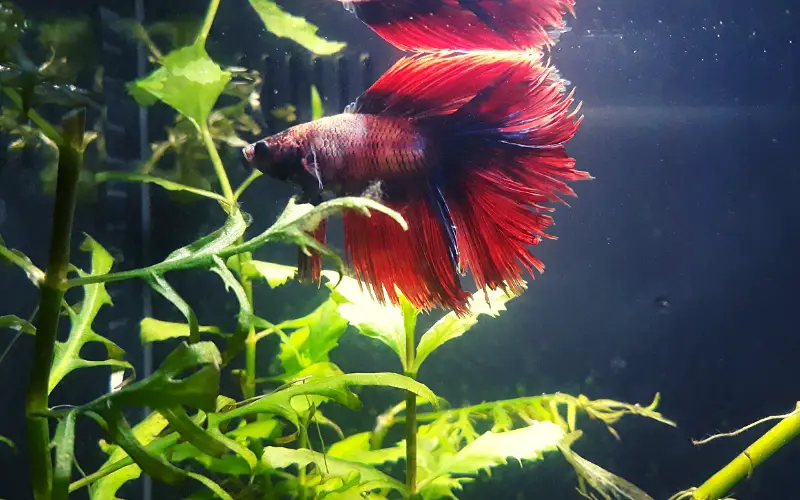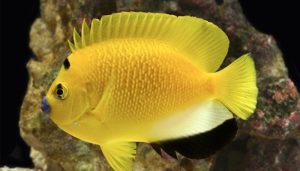Betta fish are stunning creatures known for their vibrant colors and flowing fins, making them a popular choice for aquarists. However, caring for these beauties requires more than just a decorative bowl. One of the most common questions among new betta owners is, “Do betta fish need a filter tank?“
The answer is crucial to their health and happiness. Understanding the role of filtration in maintaining a clean and balanced habitat is key to ensuring your betta thrives.
If you’re unsure whether your betta requires a filter or how it impacts their environment, you’re in the right place—let’s explore the expert insights that will transform your fish-keeping experience.
Do i need a filter for a betta fish? All betta fish require a filter in their tank to manage the waste they naturally produce. A filter helps keep the water clean, prevents the buildup of harmful toxins like ammonia, and maintains a stable ecosystem.

Without a filter, bettas are exposed to poor water quality, which can lead to stress and illness. Providing your betta with a properly maintained filter ensures their tank remains a healthy and safe home.
Table of Contents
ToggleWhy Do Betta Fish Need a Filter Tank?
Betta fish need a filter tank primarily to maintain water quality. In an aquarium, harmful substances such as ammonia, nitrite, and nitrate accumulate over time, potentially harming your betta.
A filter helps to break down these toxins through the nitrogen cycle, creating a more stable environment. Additionally, frequent water changes are required to keep the aquarium water clean and safe for your betta. Without a filter, keeping the water quality in a small tank can become a challenge, leading to stress and health issues for your pet fish.

Furthermore, a filter provides essential aeration, ensuring that the oxygen levels in the water remain adequate for your betta fish. Although bettas can breathe air from the surface due to their labyrinth organ, they still require well-oxygenated water to thrive.
In a filtered environment, beneficial bacteria can flourish, further assisting in breaking down waste products. Thus, while a filter is not strictly necessary, it significantly enhances the overall health and well-being of your betta fish.
Is Your Bettas Filter Too Strong?
When considering whether your betta fish need a filter, it’s crucial to assess the strength of the filter you are using.
Bettas are not strong swimmers, and a filter with high water flow can create a stressful environment for them. If the water current is too powerful, it may cause your betta to struggle, leading to exhaustion or injury.
This situation can be particularly problematic in smaller tanks, where a strong filter can create turbulence throughout the entire habitat.
To avoid this, look for a filter that offers adjustable flow settings or consider using a sponge filter, which provides gentle filtration without excessive water movement. Additionally, positioning the filter at the top of the tank can help reduce the water flow at the bottom where your betta spends most of its time.
Monitoring your betta’s behavior can also indicate whether the filter is too strong; if your betta consistently hides or avoids swimming in certain areas, the filter may be causing undue stress.
Betta Fish Habitats Without Filters
Keeping betta fish in habitats without filters is possible, but it comes with significant challenges. An unfiltered tank requires diligent maintenance, including frequent water changes to ensure the health of your betta.
For a tank without a filter, it’s advisable to use a minimum of a 5-gallon tank, as smaller tanks can quickly become polluted. Additionally, consider incorporating live plants, which can help improve water quality by naturally absorbing nitrates and providing oxygen.
Using a substrate such as gravel can also assist in maintaining a healthy environment, as it supports beneficial bacteria growth. However, you must vacuum the substrate regularly to remove waste and prevent ammonia buildup.
While keeping bettas in a filterless environment may seem daunting, it can be managed with proper care and attention to water quality, making it feasible for dedicated fish keepers.
How Do You Set up a Betta Fish Tank without a Filter?
Setting up a betta fish tank without a filter involves careful planning and regular maintenance. Start with selecting a suitable tank size; a minimum of 5 gallons is recommended for a single betta.
After setting up your tank, add a heater to maintain the optimal temperature, as bettas are tropical fish that thrive in warm water. Always use a water conditioner to treat tap water before adding it to the tank, ensuring harmful chemicals are neutralized.
Next, add substrate like gravel and consider incorporating live plants to help with water quality. Regular partial water changes—about 25% weekly—are essential to keep the tank clean in a filterless setup. Make sure to monitor the water parameters closely, including ammonia, nitrite, and nitrate levels, using test kits.
By following these steps and maintaining a consistent schedule for water changes, your betta can thrive even in a tank without a filter.
Can My Betta Fish Live Without a Filter?
Yes, your betta fish can live without a filter, but it requires commitment to their care. Many betta owners successfully keep their fish in unfiltered tanks, but this demands frequent water changes and careful monitoring of water quality.
Without a filter, ammonia and nitrate levels can rise quickly, leading to stress and health issues for your betta. Therefore, it’s crucial to maintain a consistent cleaning schedule and monitor the tank’s parameters regularly.
In a filterless environment, the addition of live plants can significantly help manage water quality by utilizing waste products as nutrients. This not only provides a more natural habitat but also helps maintain stable water conditions.
If you choose to go without a filter, ensure your betta has plenty of hiding spots and enrichment to reduce stress levels. With diligence, it is possible to keep your betta healthy and happy, even in a tank without a filter.
Can Betta Live in a Bowl?
While it is technically possible for a betta fish to live in a bowl, it is not advisable for their long-term health and well-being. A bowl typically does not provide adequate space or water quality management for a betta fish, especially if it is under 5 gallons.
In such small environments, toxins can build up quickly, leading to stress and various health problems for your betta. Without a filter, maintaining clean water becomes challenging, requiring frequent aquarium water changes and careful monitoring of ammonia and nitrate levels.
Additionally, bowls often lack the necessary temperature control that a tank with a heater provides. Bettas are tropical fish that thrive in warm water, so a bowl could lead to fluctuating temperatures, which can be detrimental.
If you are considering keeping a betta fish, opting for a properly sized aquarium with a heater and filter is the best choice for ensuring a healthy and happy environment.
Can Betta Fish Survive Without an Air Pump?
Betta fish can survive without an air pump, as they possess a unique labyrinth organ that allows them to breathe atmospheric oxygen. However, having an air pump can enhance their living conditions by improving water aeration, which is beneficial for overall water quality.
In a tank without sufficient water movement, an air pump can help prevent stagnant areas where harmful bacteria might thrive. Additionally, some bettas enjoy swimming through bubbles created by air pumps, providing them with stimulation and exercise.
Even in the absence of an air pump, it is crucial to ensure that the tank water is well-oxygenated. This can be achieved by maintaining a good filtration system or by performing regular water changes.
If you choose to keep your betta in a filterless setup, be vigilant about water quality and consider adding live plants to help oxygenate the water naturally. Ultimately, while bettas can live without an air pump, providing optimal conditions will lead to a healthier and happier pet.
Do Betta Fish Need a Filter or Bubbler?
Betta fish do not strictly need a filter or bubbler, but both can significantly improve their living conditions. A filter helps maintain water quality by removing toxins and providing beneficial bacteria that aid in the nitrogen cycle, while a bubbler enhances aeration, ensuring optimal oxygen levels in the tank.
In an aquarium setup, having both a filter and bubbler can create a balanced environment that supports the health of your betta fish.
However, it is essential to consider the strength of the filter, as bettas are not strong swimmers. A filter with adjustable flow settings or a sponge filter is often recommended to prevent strong currents.
If you choose to rely solely on water changes for maintaining water quality, it becomes crucial to monitor ammonia, nitrite, and nitrate levels closely. Overall, while bettas can survive without a filter or bubbler, incorporating them into their setup can lead to a more stable and enriching environment.
Commonly Asked Questions about Keeping Betta without a filter (FAQs)
Do Betta fish need a filter in their tank?
Do betta fish need filtration? While Betta fish can survive without a filter in their tank, having a filter can help maintain clean water, which is crucial for their health. A good filter will help remove waste and toxins like ammonia and nitrites from the water.
What is the best filter for a Betta tank?
The best filter for a Betta tank is one that has gentle water flow to avoid stressing the fish. Look for small filters designed for tanks of 5 gallons or more. Sponge filters are also a great option as they provide biological filtration and have minimal water movement.
Can Betta fish live in a 1 gallon tank without a filter?
While Betta fish can survive in a 1 gallon tank without an aquarium filter, it is not ideal. Such a small tank would require frequent partial water changes to keep ammonia levels low. A larger tank, such as a 5.5 gallon or 10 gallon tank with a filter, is recommended for better water quality.
Do Betta fish need a heater in their tank?
Yes, Betta fish need a heater in their tank to maintain a constant water temperature between 76°F and 82°F. A tank heater is essential to ensure that the water temperature stays within this range, as Betta fish are tropical fish that thrive in warm water.
How often should I change the water in a Betta tank with a filter?
Even with a filter in their tank, it’s important to perform partial water changes regularly. Aim for a 25% water change once a week to keep the water clean and remove any buildup of toxins.
What tank mates are suitable for Betta fish?
When considering tank mates for Betta fish, choose peaceful species that won’t nip at their long fins. Good options include Corydoras catfish, certain species of snails, or shrimp. Avoid keeping them with other Betta fish or aggressive species.
Can I add a Betta fish to a new tank right away?
It’s not advisable to add a Betta fish to a new tank immediately. You should cycle the tank first to establish beneficial bacteria that break down ammonia and nitrites. This process can take several weeks, so be patient before introducing your new fish.
What should I do if my Betta fish is stressed by the filter’s flow?
If your Betta fish seems stressed by the filter’s flow, you can adjust the aquarium filter to reduce the water flow or add decorations to break up the current. Alternatively, consider using a sponge filter or a filter with adjustable flow settings.
How can I make tap water safe for my Betta fish?
To make tap water safe for your Betta fish, use a water conditioner that removes chlorine and makes tap water safe. This step is especially important when performing water changes in your tank.
What type of filter is best for a betta?
A sponge filter is generally the best for betta fish. They provide gentle water flow, increase surface area for beneficial bacteria, and are less likely to create strong currents that can stress bettas.
What is the best filter media for a fish tank?
The best filter media for a fish tank includes bio-media for beneficial bacteria, mechanical sponges for debris, and activated carbon for chemical filtration, ensuring clean, healthy water for fish.
Conclusion
In summary, do bettas need a filter? while betta fish can survive without a filter, providing one can greatly enhance their quality of life. Whether you choose to set up a filtered or filterless tank, maintaining water quality, temperature, and overall tank conditions is vital. Regular water changes, using a heater, and being mindful of the strength of any filtration system you employ are all crucial steps in keeping your betta healthy. Ultimately, dedicated care and thoughtful planning will ensure your betta fish thrive, regardless of the environment you choose.
You might also like
- 7 Steps on How to Save Dying Fish After Water Change (FAQ)
- How Long Can a Betta Fish Live Without a Filter? (Must-Read)
- Introduction to Black Betta Fish: Care, Types & Price (FAQ)
- Purple Betta Fish care: Price, Breeding & Names (Exclusive Guide)
- How to Clean Fish Tank After Betta Dies? (Here’s What To Do!)
- Can Betta Fish See in the Dark! (Is It Even Possible?)
- Do Betta Fish Need Air Pump? (5 Reasons You Should Get one)
- Does a Betta Fish Need a Bubbler: Don’t Make This Deadly Mistake




